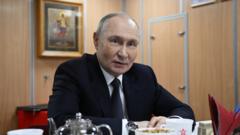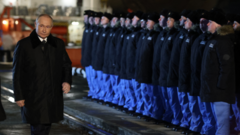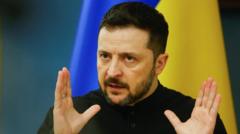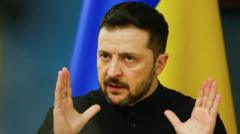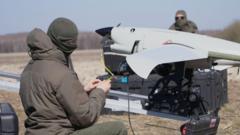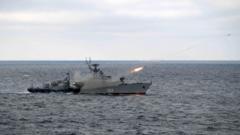As Europe strives for military independence amid the ongoing Ukraine conflict, unity is fraying, exposing conflicts over defense funding and political will.
Europe's Commitment to Defense Faces Internal Strains Amid Ukraine Conflict

Europe's Commitment to Defense Faces Internal Strains Amid Ukraine Conflict
European leaders recognize the need to boost military spending but face divisions and challenges in actualizing this commitment.
In recent months, European leaders, prompted by the U.S. to increase their defense efforts and support for Ukraine, have adopted a firm stance on security matters. However, there remains a significant gap between their rhetoric and actionable steps, as discord grows around military spending amidst an economic backdrop marked by low growth and high debt.
Nations such as the Netherlands express strong reluctance towards accumulating more collective debt for defense. Meanwhile, the challenge of maintaining Hungary's support continues to escalate, highlighting the increasing fractures in European unity. When Ursula von der Leyen, the European Commission President, proposed an ambitious military funding initiative known as “ReArm Europe,” it received mixed reactions, particularly from Italy and Spain, who considered the approach overly aggressive. This has led to a reassessment and a subsequent rebranding of the initiative as “Readiness 2030.”
This new timeline extends past the anticipated departure of Donald Trump from the presidency, signaling a longer-term understanding that Europe’s path towards self-reliance in defense will necessitate substantial investments, political finesse, and ongoing cooperation with the United States. The urgency behind this initiative has been echoed by leaders like Kaja Kallas, the former Prime Minister of Estonia, who argues that bolstering support for Ukraine serves as a critical frontline defense against Russian aggression.
As Europe navigates its military aspirations, the bureaucratic struggles and varying national interests reveal the complications that lie ahead in building a cohesive and robust defense strategy. The coming months will be pivotal in determining whether Europe can bridge its divides to implement an effective military policy that stands strong in solidarity against external threats.
Nations such as the Netherlands express strong reluctance towards accumulating more collective debt for defense. Meanwhile, the challenge of maintaining Hungary's support continues to escalate, highlighting the increasing fractures in European unity. When Ursula von der Leyen, the European Commission President, proposed an ambitious military funding initiative known as “ReArm Europe,” it received mixed reactions, particularly from Italy and Spain, who considered the approach overly aggressive. This has led to a reassessment and a subsequent rebranding of the initiative as “Readiness 2030.”
This new timeline extends past the anticipated departure of Donald Trump from the presidency, signaling a longer-term understanding that Europe’s path towards self-reliance in defense will necessitate substantial investments, political finesse, and ongoing cooperation with the United States. The urgency behind this initiative has been echoed by leaders like Kaja Kallas, the former Prime Minister of Estonia, who argues that bolstering support for Ukraine serves as a critical frontline defense against Russian aggression.
As Europe navigates its military aspirations, the bureaucratic struggles and varying national interests reveal the complications that lie ahead in building a cohesive and robust defense strategy. The coming months will be pivotal in determining whether Europe can bridge its divides to implement an effective military policy that stands strong in solidarity against external threats.





